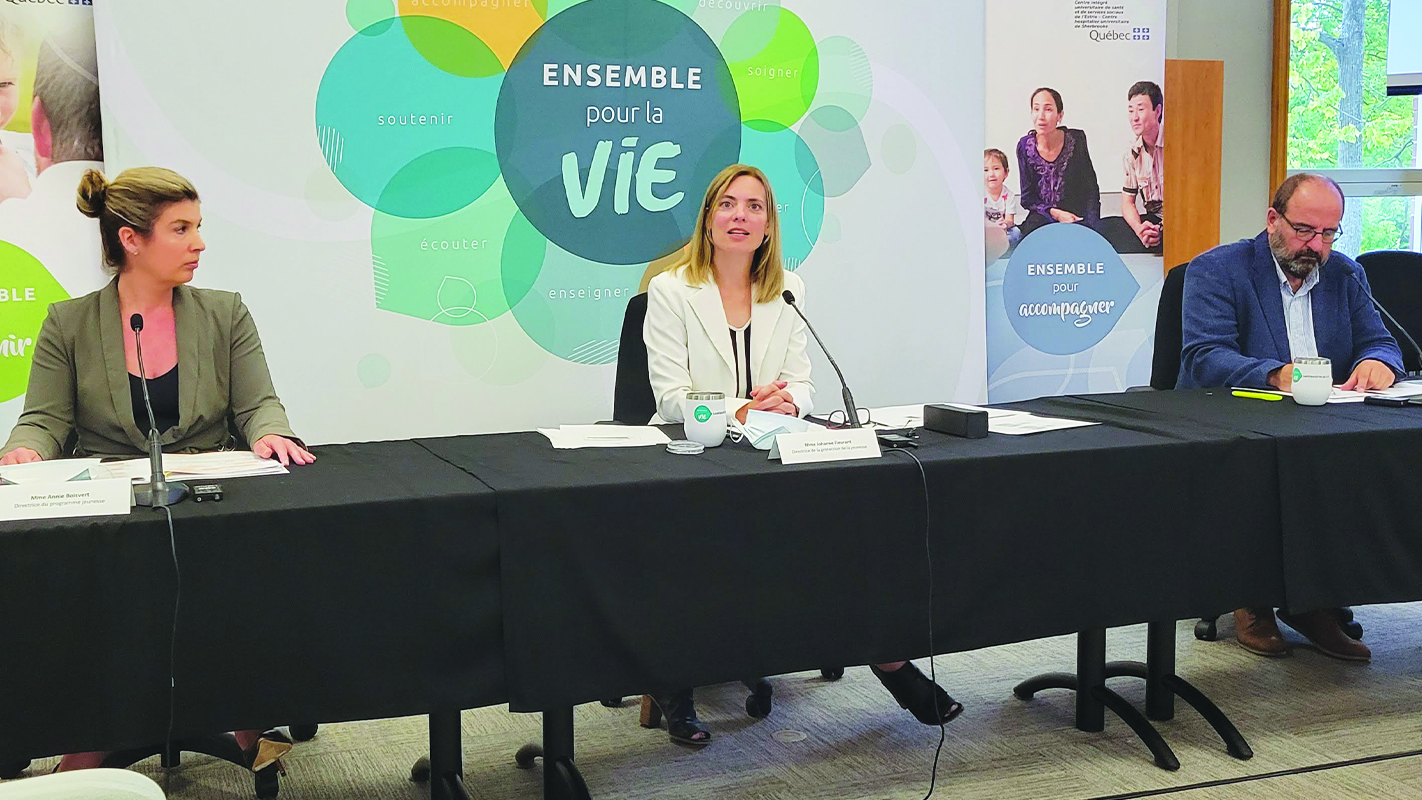By Gordon Lambie
Local Journalism Initiative
According to regional director Johanne Fleurant, Youth Protective Services in the Eastern Townships saw a 2.8 per cent increase in reporting over the 2020-21 year despite 7,000 fewer reports made across Quebec from mid-March to mid-May, 2020 than for the same period the previous year. Speaking in the context of the annual report of Quebec’s directors of youth protective services (DPJs) on Wednesday, Fleurant said that there were 7,958 reports treated by the local services in the last year compared to 7,744 the year before, with 2,829, or roughly 35 per cent, retained for follow up.
Within that total, the region saw a slight increase in reports related to neglect, although the director said that one of the items that falls under that heading is absenteeism from school, which was well known to be higher during the pandemic in general. Otherwise, the proportion of different issues in the region remained similar. The Townships’ largest number of retained reports to the DPJ were for neglect (31.1 per cent), psychological abuse (23.7 per cent) and serious risk of neglect (18.4 per cent).
Despite past observations that certain parts of the English community and other minority cultural communities in the region have higher risk factors when it comes to childhood development, Fleurant said that there was not any greater difference observed when it came to reporting among the region’s English-speaking communities as a result of the COVID-19 pandemic than for the population as a whole. She did note, however, that the fact that certain cultural communities tend to turn inward rather than interact with the broader community can sometimes be an obstacle the DPJ has to take into account in outreach.
More information on the resources available for families in the region is available in English online at santeestrie.qc.ca/family
For full story and others, subscribe now.





